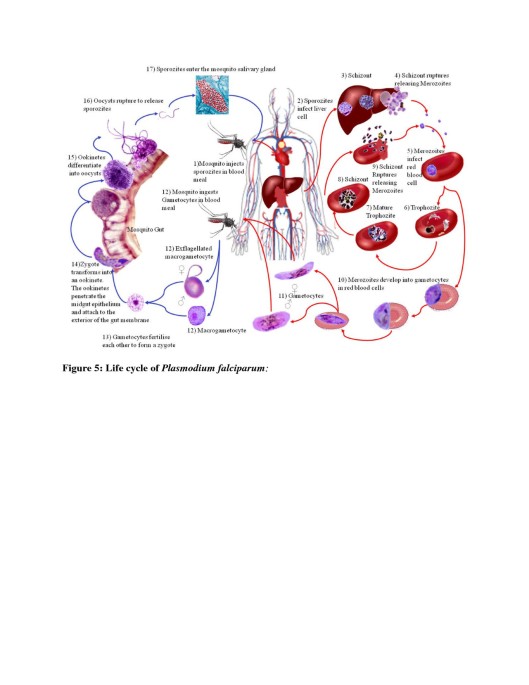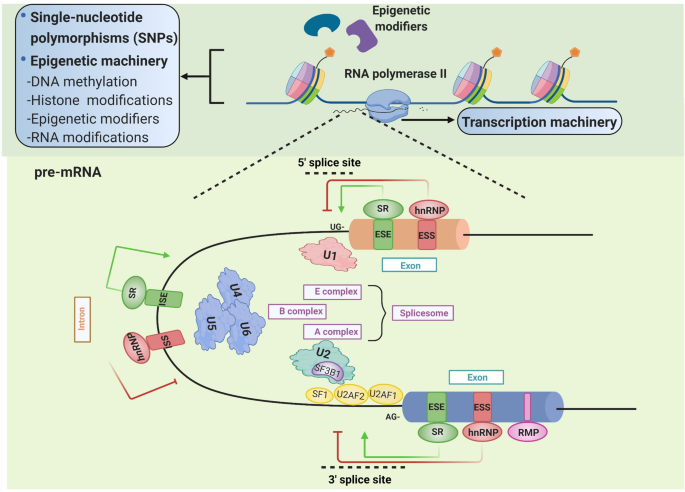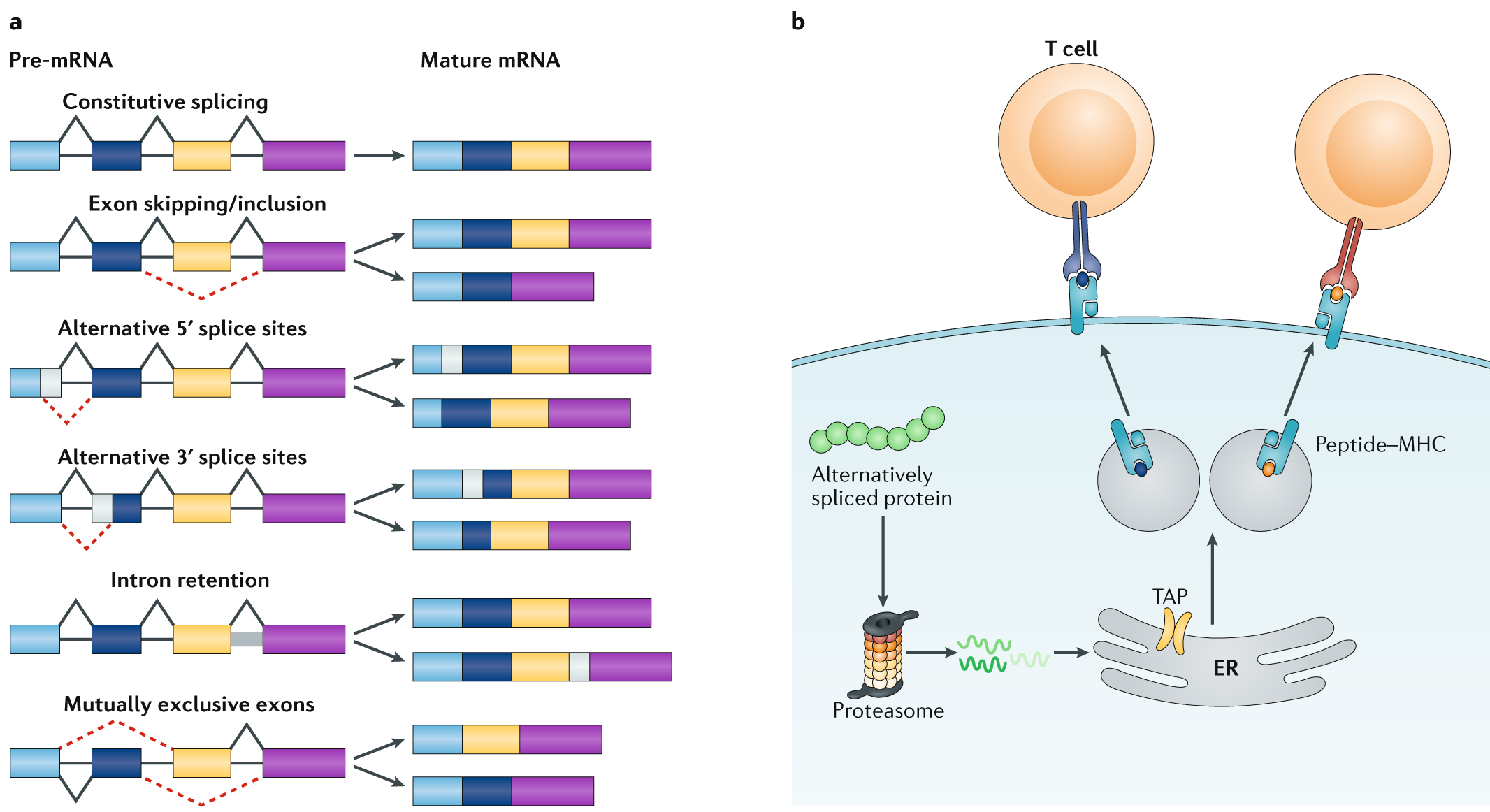The role played by alternative splicing in antigenic variability
Por um escritor misterioso
Last updated 04 junho 2024

Endo-parasites that affect humans include Plasmodium, the causative agent of malaria, which remains one of the leading causes of death in human beings. Despite decades of research, vaccines to this and other endo-parasites remain elusive. This is in part due to the hyper-variability of the parasites surface proteins. Generally these surface proteins are encoded by a large family of genes, with only one being dominantly expressed at certain life stages. Another layer of complexity can be introduced through the alternative splicing of these surface proteins. The resulting isoforms may differ from each other with regard to cell localisation, substrate affinities and functions. They may even differ in structure to the extent that they are no longer recognised by the host’s immune system. In many cases this leads to changes in the N terminus of these proteins. The geographical localisation of endo-parasitic infections around the tropics and the highest incidences of HIV-1 infection in the same areas, adds a further layer of complexity as parasitic infections affect the host immune system resulting in higher HIV infection rates, faster disease progression, and an increase in the severity of infections and complications in HIV diagnosis. This review discusses some examples of parasite surface proteins that are alternatively spliced in trypanosomes, Plasmodium and the parasitic worm Schistosoma as well as what role alternate splicing may play in the interaction between HIV and these endo-parasites.
Alternative splicing in cancer cells. Impact of splicing (left part)

Sxl-mediated regulation of alternative splicing. (A) Autoregulatory

The relevance of alternative RNA splicing to pharmacogenomics: Trends in Biotechnology

Temporal Modulation of Differential Alternative Splicing in HaCaT Human Keratinocyte Cell Line Chronically Exposed to Arsenic for up to 28 Wk, Environmental Health Perspectives

Regulatory roles and mechanisms of alternative RNA splicing in adipogenesis and human metabolic health, Cell & Bioscience

Alternative splicing perturbation landscape identifies RNA binding proteins as potential therapeutic targets in cancer - ScienceDirect

The role played by alternative splicing in antigenic variability in human endo-parasites, Parasites & Vectors

SARS-CoV-2 selectively induces the expression of unproductive splicing isoforms of interferon, class I MHC and splicing machinery genes

Alternative splicing: multiple control mechanisms and involvement in human disease: Trends in Genetics

Alternative mRNA splicing in cancer immunotherapy

RNA Splicing Analysis: From In Vitro Testing to Single-Cell Imaging - ScienceDirect
Recomendado para você
-
SCP-7148 - SCP Foundation04 junho 2024
-
 SCP-7149 - SCP Foundation04 junho 2024
SCP-7149 - SCP Foundation04 junho 2024 -
 milk +1 - Confic Wiki04 junho 2024
milk +1 - Confic Wiki04 junho 2024 -
 Official Website of Valley County, Idaho - News04 junho 2024
Official Website of Valley County, Idaho - News04 junho 2024 -
 PTFE Fabric Curbell Plastics04 junho 2024
PTFE Fabric Curbell Plastics04 junho 2024 -
 New 30-40cm Anime Scp Siren Head Plush Doll Toys Foundation Scary04 junho 2024
New 30-40cm Anime Scp Siren Head Plush Doll Toys Foundation Scary04 junho 2024 -
 Tips & tricks on how to troubleshoot problems related to high CPU04 junho 2024
Tips & tricks on how to troubleshoot problems related to high CPU04 junho 2024 -
 30.59% OFF on B2S ANITECH เครื่องบดสับอเนกประสงค์ รุ่น SCP300 สีดำ04 junho 2024
30.59% OFF on B2S ANITECH เครื่องบดสับอเนกประสงค์ รุ่น SCP300 สีดำ04 junho 2024 -
 Synthesis of the Tetrahydroisoquinoline Alkaloid (±)-Renieramycin04 junho 2024
Synthesis of the Tetrahydroisoquinoline Alkaloid (±)-Renieramycin04 junho 2024 -
 SCP-7148 Land of Milk and Honey Keter [SCP Document Reading04 junho 2024
SCP-7148 Land of Milk and Honey Keter [SCP Document Reading04 junho 2024
você pode gostar
-
 Crunchyroll's Anime Library Is Now Available Via Prime Video - IGN04 junho 2024
Crunchyroll's Anime Library Is Now Available Via Prime Video - IGN04 junho 2024 -
 MAGZO Magnetic Screen Door Fit Door Size 72 x 80 Inch, Screen Size 74 x 81 French Door Screen with Full Frame Hook&Loop Black04 junho 2024
MAGZO Magnetic Screen Door Fit Door Size 72 x 80 Inch, Screen Size 74 x 81 French Door Screen with Full Frame Hook&Loop Black04 junho 2024 -
 ASSISTA AO VIVO: Brasil x Inglaterra - She Believes Cup 201904 junho 2024
ASSISTA AO VIVO: Brasil x Inglaterra - She Believes Cup 201904 junho 2024 -
 Fast Fingers 🕹️ Play Now on GamePix04 junho 2024
Fast Fingers 🕹️ Play Now on GamePix04 junho 2024 -
Dom Pedro II Poker Club04 junho 2024
-
 Cómo dibujar y pintar ET Loco Natasha Panda Roblox04 junho 2024
Cómo dibujar y pintar ET Loco Natasha Panda Roblox04 junho 2024 -
 Dragon Quest Monsters: The Dark Prince - Best Starter Monster to Choose04 junho 2024
Dragon Quest Monsters: The Dark Prince - Best Starter Monster to Choose04 junho 2024 -
 The Legend of Zelda: Ocarina of Time / Master Quest - GC04 junho 2024
The Legend of Zelda: Ocarina of Time / Master Quest - GC04 junho 2024 -
 Alfabeto infantil / As vogais / Quiz das vogais/ Aprenda brincando #alfabetoinfantil04 junho 2024
Alfabeto infantil / As vogais / Quiz das vogais/ Aprenda brincando #alfabetoinfantil04 junho 2024 -
 Gran Turismo 4 (Video Game 2004) - IMDb04 junho 2024
Gran Turismo 4 (Video Game 2004) - IMDb04 junho 2024
